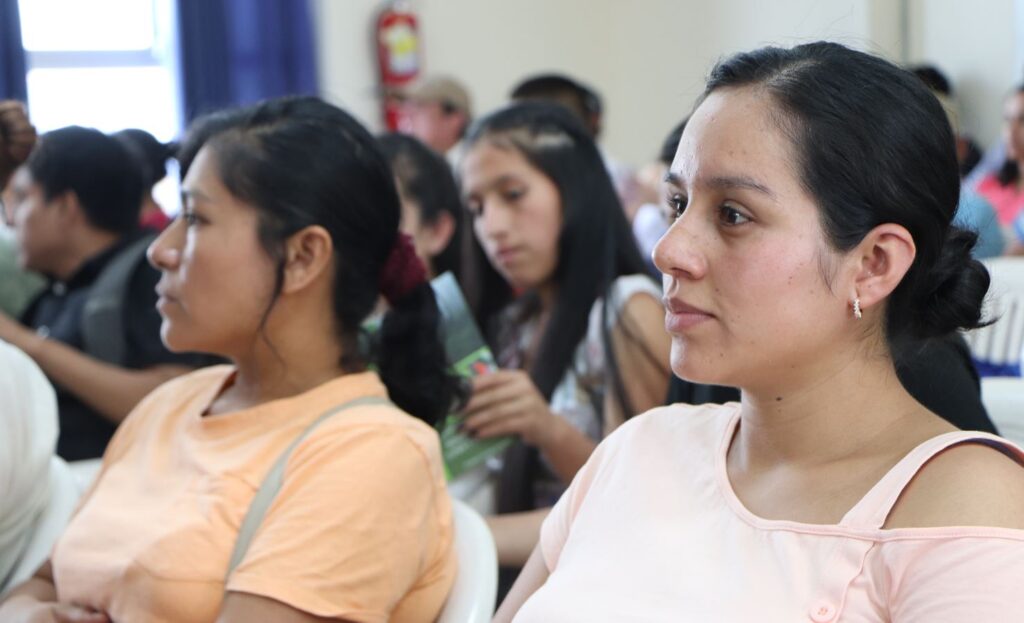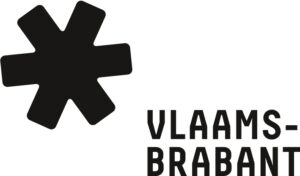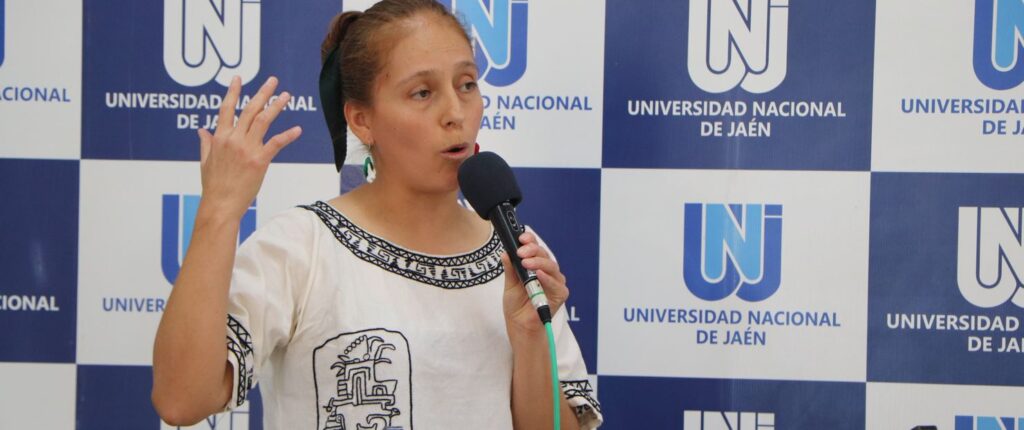ECUADOR/PERU – The final workshops at the bi-national Water School were held in December. The 97 participants – half of whom were women – were representatives of local water committees, social leaders, park rangers and youth involved in ecological initiatives, located in the Mayo-Chinchipe basin.
Leidi Tatiana Catillo Loaiza is 26, lives in Valladolid (Ecuador) is president of an association of 44 ranchers (Asociación de Ganaderos de la Region Sur Oriental del Ecuador) and studied at the Water School. She was urged to enroll in the Water School by an employee of Protos Andes (a partner of Join For Water). “Cattle ranching pollutes water resources. Cattle ranchers are not really concerned with water quality, they don’t take precautions, they don’t feel responsible, but of course the people living downstream suffer from their activities. The water quality and quantity is lower there. At the Water School we learned how to come up with solutions and we are now sharing that knowledge with the farmers in the region. Together with them we plant fruit and deciduous trees. In addition, we limit the grazing area so that the cattle take up less space. In this way less forest has to be cut down, but the cattle must of course also be able to eat sufficiently. That is why we are now working with different, better cattle feed. Since our interventions, we really notice a difference already in water quality and quantity. The workshops at the Water School took place alternately in Ecuador and Peru. In the morning there were theory lessons, in the afternoon we learned how to put theory into practice. The most important thing I learned here is of course that we are all responsible to handle our water well, that we have to protect it. I really want to promote that message myself among all the people I work with.”

Cindy Diaz Horna from Chontalí (Peru) also studied at the Water School. “I work as a volunteer around environmental education, organize adventurous excursions for tourists and engage in women’s empowerment. I am also a municipal park ranger in my district and am committed to nature conservation. When a staff member of Naturaleza y Cultura Internacional (a partner of Join For Water) contacted me to ask if I would be interested in taking the water training, I did not hesitate for a second, because the water theme interests me immensely. I feel that water challenges affect us all. Water is a human right, but it is violated in so many places around the world. We have a lot to do as a society to improve it, and I am happy to contribute to it. The Water School’s courses are didactic and interactive, there is the opportunity to work in groups per catchment area, and that makes it possible to learn about different realities, problems and solutions.”
With the support of:



